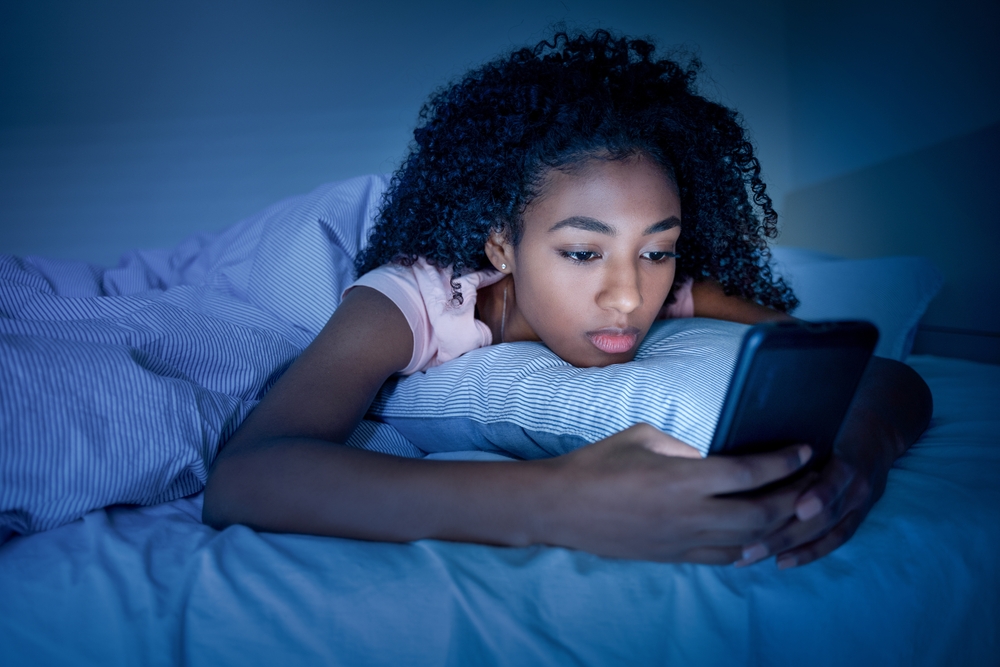Early school start times, full schedules of extracurricular activities, and piles of nightly homework mean that many teens aren’t getting the recommended 8.5-9.5 hours of sleep. While you may think teenagers are young and resilient enough to handle sleep deprivation, these habits could be setting them up for serious mental health concerns.
Sleep Deprivation in Teens: Causes and Consequences
The average US high school starts at around 8 AM; however, the American Academy of Pediatrics suggests most teens should still be sleeping at that point. According to their research, adolescents take longer to fall asleep at night, meaning most are awake until 11:00 PM or later. In order to fit in an adequate amount of sleep, they recommend schools should start no earlier than 8:30 AM – and the later, the better – yet many schools persist in early starts, resulting in 87% of high schoolers failing to meet sleep recommendations – often getting less than 7 hours a night.
In addition to the natural proclivity of teens to stay up late, sleep delay can be associated with several environmental factors. Caffeine consumption, for example, can make sleep difficult, especially if consumed in the afternoon or evening. Excessive homework expectations for high schoolers can lead students to stay up late trying to complete assignments, especially if they’re involved in sports or other extracurriculars. Even if assignments are completed earlier in the day, teens need time to relax and decompress just like adults, which often means staying up late to simply engage in basic self-care.
Psychological Effects of Sleep Deprivation
Sleep is incredibly important in regulating many aspects of our health, both mental and physical. Chronic sleep deprivation leads to difficulties in mood and emotional regulation, concentration, behavior and impulse control, and executive function. Chief mental health complaints among sleep-deprived teens include depression and anxiety. Students who suffer sleep loss also tend to perform worse in school, due to issues with concentration and executive function.
The mental health problems caused by poor sleep often go hand in hand with substance use, as well. Teens with anxiety, for example, are more likely to abuse drugs associated with relaxation like alcohol, tobacco or nicotine, and marijuana in an effort to calm their minds. Preliminary animal studies also indicate that sleep deprivation can make us more susceptible to substance use, as a result of impaired impulse control and increased reward-seeking behavior.
Sleep deprivation also exacerbates symptoms of neurodivergence. Not only are people with ADHD more likely to have a delayed circadian rhythm – functioning best when staying up late and sleeping in – but poor sleep is also associated with more intense ADHD symptoms. Likewise, children on the autism spectrum show more prevalent issues with social interaction, attention, overstimulation, and emotion regulation when sleep deprived.
Teen Mental Health Treatment in San Diego, CA
If you’re concerned about your child’s mental health, consider getting a professional involved. The Forum at San Diego Brainworks has a staff of highly skilled psychiatrists and therapists ready to diagnose and treat your teen.
We offer treatment for a variety of neurodivergences and mental health concerns, including depression, anxiety, addictive disorders, ADHD, and autism spectrum disorder, to name a few. Our treatments combine intensive outpatient services; individual, group, and family therapy; and psychological testing, depending on your teen’s needs. Get in touch today to find out how we can help.



